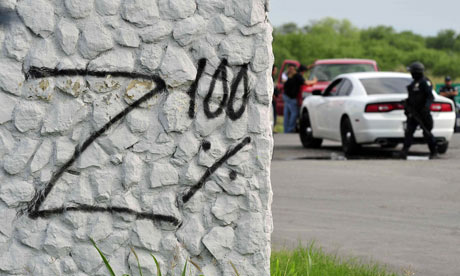Unemployed people suspected of suffering from alcoholism or drug addiction will have their benefits cut if they refuse treatment for their condition, the work and pensions secretary, Iain Duncan Smith, will signal on Wednesday. In a sign of the government's new benefits regime, which lies at the heart of Duncan Smith's cost-cutting welfare changes, staff in Jobcentre Plus offices will be encouraged to cut the jobseeker's allowance of claimants who reject treatment for addiction. The new rules will come into place in October 2013 when the universal credit, which is designed to wrap benefits into one payment, is introduced. A new claimant contract lies at the heart of the universal credit reforms. Claimants will have to sign a contract in which they agree to look for work in exchange for an undertaking from the government to support them while they do so. Government sources said the contract would allow Jobcentre Plus staff to say that a suspected addict is in breach of their commitments if they refuse help for alcoholism or drug addiction. Duncan Smith will give a flavour of the new rules when he addresses an event in parliament organised by Alcoholics Anonymous (AA). He will say: "The outdated benefits system fails to get people off drugs and put their lives on track. We have started changing how addicts are supported, but we must go further to actively take on the devastation that drugs and alcohol can cause. "Under universal credit we want to do more to encourage and support claimants into rehabilitation for addiction and starting them on the road to recovery and eventually work. Getting people into work and encouraging independence is our ultimate goal. Universal credit will put people on a journey towards a sustainable recovery so they are better placed to look for work in future and we will be outlining our plans shortly." It is understood that the work and pensions secretary will not make a formal announcement on Wednesday of the powers that will be handed to Jobcentre Plus staff. Duncan Smith wants to use the event to focus on what he regards as the positive work AA does in helping to treat alcoholism. A government source said: "Iain wants to focus on the brilliant work Alcoholics Anonymous does in changing people's lives. He really wants to encourage people who have drink problems to go to AA for treatment. It will transform their lives and will help them into work." The source said Duncan Smith believes it is right to give jobcentre staff powers to cut benefits if an addict refuses treatment because they can detect signs of trouble. The source said: "The universal credit will allow staff in Jobcentre Plus offices to say: this person has been unemployed for some time. The staff know if people are addicted to alcohol. They know the people they are dealing with. "But we want this to be positive and to be about signposting people to superb organisations that can help them. This is about changing their lives. It is very important to support addicts into the workplace." But if claimants refuse they will have their benefits docked. "There will be sanctions," the source said, citing cuts to the jobseeker's allowance as an example. Ministers believe that one indicator Jobcentre Plus staff can use to see whether a claimant is an addict is the amount of times they apply for a crisis loan. "If you are applying for that up to 10 times a year then that is a sign of a chaotic life," one source said. Analysis by the Department of Work and Pensions shows that almost 40,000 people claim incapacity benefit with alcoholism declared as their "primary diagnosis". Of these, 13,500 have been claiming for a decade or more. There are about 160,000 "dependent drinkers" in England who receive one or more of the main benefits. There are 1m violent crimes a year that are related to alcoholism and 1.2m admissions to hospitals a year related to alcoholism. Universal credit is the most important element of Duncan Smith's welfare reforms, developed during his years in opposition through his Centre for Social Justice, which is designed to achieve his central goal of encouraging people into work. It will integrate tax credits and out-of-work benefits into one payment, with the aim of smoothing the transition to work. Labour has given the universal credit a cautious welcome, though it has taken issue with the scale of benefit cuts. Lord Low of Dalston, the vice-president of the Royal National Institute of Blind People who sits as a crossbencher, told peers this year: "Though it has some very sensible and progressive things at its core, in the shape of the universal credit, nevertheless it goes too far to most people's consciences in the way in which it takes vital support away from some of the most needy in our society."






 01:19
01:19
 El NACHO
El NACHO

 Rebekah Brooks arriving at the Leveson Inquiry
Rebekah Brooks arriving at the Leveson Inquiry Subscribe
Subscribe Follow me!
Follow me!


